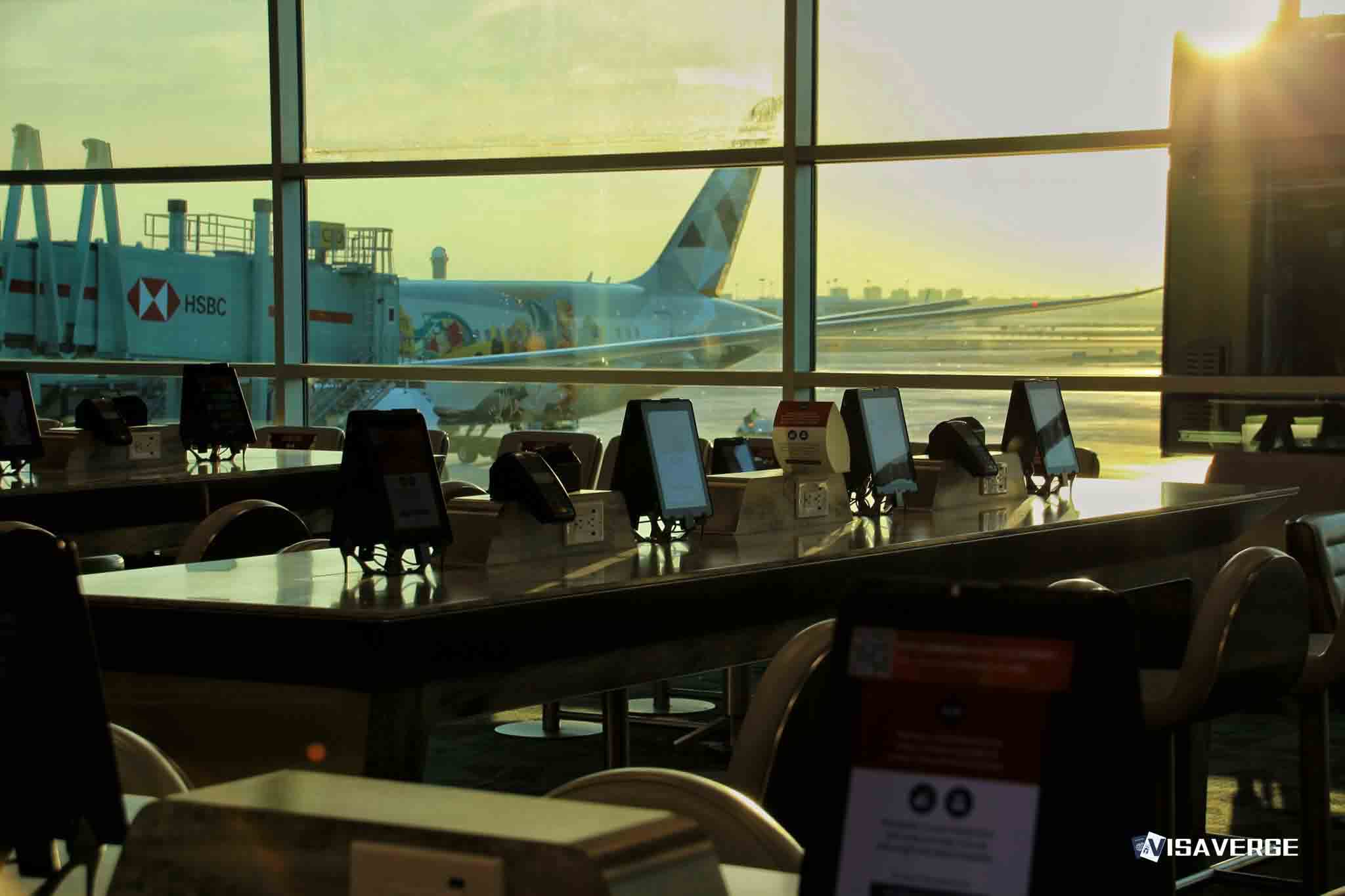Key Takeaways
• Maine’s transitional housing program ends September 30, 2025; only asylum seekers in the program before then qualify.
• Federal funding cuts in 2025 limit support for refugees arriving after January 13; asylum seekers rely on state aid.
• Catholic Charities Maine closed Bangor resettlement office June 30, 2025; refugees must now contact Southern Maine offices.
If you are a refugee or asylum seeker in Maine in 2025, you may be wondering if you qualify for state-level support, transitional housing, or other resources. The landscape has changed a lot due to budget cuts, fewer new arrivals, and federal policy changes. This guide will help you quickly figure out if you are eligible for help, what the requirements are, what might disqualify you, and what to do if you don’t qualify. You’ll also find tips on how to improve your chances and where to get more information.
Who Can Get State-Level Support in Maine?

Eligibility for state-level support in Maine depends on your immigration status, when you arrived, and which programs are still running. The main groups considered for help are:
- Refugees: People who have been given refugee status by the United States 🇺🇸 government after fleeing their home country due to war, violence, or persecution.
- Asylum Seekers: People who have come to the United States 🇺🇸 and are asking for protection because they fear harm in their home country, but who have not yet been granted refugee status.
Let’s break down the main programs and what you need to qualify.
Transitional Housing Program for Asylum Seekers
This program, run by MaineHousing and Catholic Charities Maine, has been a key resource for asylum seekers since 2022. It offered temporary shelter, job training, English classes, and help finding permanent housing. Here’s what you need to know:
Do You Qualify?
- YES, if you are an asylum seeker who entered the program before September 2025 and are already living in the Saco transitional housing facility.
- NO, if you are a new arrival after September 2025, or if you have not already been placed in this program.
Detailed Requirements:
- You must have been referred to the program by Catholic Charities Maine or another official agency.
- You must be an asylum seeker (not a refugee with full status) who arrived in Maine before the program’s closure date.
- You must not have found permanent housing yet.
Examples:
- Maria, who arrived in Maine in 2023 and was placed in the Saco hotel by Catholic Charities Maine, is eligible for transitional housing until the program ends.
- Ahmed, who arrived in October 2025, is not eligible because the program is winding down and not accepting new residents.
Disqualifying Factors:
- Arriving in Maine after September 2025.
- Already having permanent housing.
- Not being referred by an official agency.
Important Dates:
- The transitional housing program’s hotel lease ends September 30, 2025.
- The program will likely close by the end of 2025.
What Happens When the Program Ends?
- Catholic Charities Maine and the city of Portland are working to help the remaining families find permanent homes before the program closes.
- If you are in the program now, you will get help moving to permanent housing.
- If you are not in the program, you will need to look for other options (see below).
Federal Funding Cuts and Their Impact
Federal funding for refugee services in Maine has been cut sharply in 2025. This affects who can get help and what kind of help is available.
Who Is Affected?
- Refugees who arrived before January 13, 2025, may have received basic help (housing, food, case management) for their first 90 days.
- Refugees who arrived after January 13, 2025, are not getting this federal support due to the funding cut.
- Asylum seekers are not covered by these federal funds and rely on state and local programs.
Requirements for Federal Support (When Available):
- You must have official refugee status.
- You must have arrived in Maine within the last 90 days (before the funding cut).
Disqualifying Factors:
- Arriving after January 13, 2025.
- Not having official refugee status (asylum seekers do not qualify for this federal help).
What If You Don’t Qualify?
- You may need to rely on local community groups, churches, or fundraising for help with housing and basic needs.
- Some agencies, like Maine Immigrant and Refugee Services (MIRS) and the Jewish Community Alliance (JCA) of Southern Maine, are still offering limited support, but resources are tight.
Closure of the Greater Bangor Refugee Resettlement Office
If you live in the Bangor area, you should know that Catholic Charities Maine closed its refugee resettlement office there on June 30, 2025.
Who Is Affected?
- Refugees who were getting help from the Bangor office.
- New arrivals in the Bangor area.
What Does This Mean for You?
- If you finished your 90-day resettlement period before June 30, 2025, you should have received all your initial support.
- If you still need help, you must now contact Catholic Charities Maine’s offices in Southern Maine.
Alternative Options:
- Reach out to community partners in Bangor for local support.
- Contact the Office of Maine Refugee Services (OMRS) for guidance.
Office of Maine Refugee Services (OMRS)
OMRS is the state agency that coordinates refugee resettlement and support across Maine. It works with Catholic Charities Maine, JCA, and MIRS.
Who Can Get Help from OMRS?
- Refugees and asylum seekers who are already in Maine.
- People referred by partner agencies.
What Does OMRS Provide?
- Policy guidance and program development.
- Coordination with schools, medical providers, and community groups.
- Grant management for agencies serving refugees and asylum seekers.
Limitations:
- OMRS does not directly provide housing or cash assistance.
- Services may be limited due to funding cuts and fewer new arrivals.
Current Trends: Fewer Arrivals and Reduced Support
The number of new asylum seekers and refugees coming to Maine has dropped in 2025. This is due to changes in federal immigration policy and the suspension of the refugee admissions program.
What Does This Mean for Eligibility?
- Fewer new arrivals means less pressure on existing programs, but also less funding and fewer services.
- If you are already in Maine, you may still get some support, but options are shrinking.
- If you are planning to come to Maine, you should know that most state-level programs are not accepting new clients.
Key Stakeholders and Where to Get Help
If you need help, these are the main organizations to contact:
- Catholic Charities Maine: Main provider of transitional housing, job training, and integration support.
- MaineHousing: Manages the transitional housing program and works with Catholic Charities Maine.
- Maine Immigrant and Refugee Services (MIRS): Offers support in Lewiston, but with limited resources.
- Jewish Community Alliance (JCA) of Southern Maine: Provides resettlement help in Southern Maine.
- Office of Maine Refugee Services (OMRS): Coordinates state-level support and can direct you to the right agency.
Contacting These Agencies:
- Visit the Catholic Charities Maine website for information on services and how to apply.
- For state-level information, check the Office of Maine Refugee Services page.
- For housing help, see MaineHousing’s official site.
What Disqualifies You from State-Level Support?
- Arriving in Maine after the closure of key programs (after September 2025 for transitional housing).
- Not having official refugee or asylum seeker status.
- Already having found permanent housing.
- Not being referred by an official agency.
- Being outside the areas served by active agencies (for example, in Bangor after the office closure).
Alternative Options If You Don’t Qualify
If you do not meet the requirements for state-level support, you still have some options:
- Community Support: Many local churches, mosques, and community groups offer food, clothing, and sometimes temporary shelter.
- Fundraising: Some families have raised money through online campaigns to cover rent or other needs.
- Volunteers: Local volunteers may help with English lessons, job searches, or transportation.
- Legal Aid: Nonprofit legal groups can help you with your asylum case or work permit applications.
Improving Your Chances of Getting Help
- Apply Early: If you are eligible for any program, apply as soon as possible before resources run out.
- Stay in Touch: Keep in contact with your case manager or agency. Let them know if your situation changes.
- Get Involved: Join community groups or faith organizations. They often know about resources before they are widely advertised.
- Learn English: Many programs give priority to people who are taking English classes or job training.
- Seek Work Authorization: If you are eligible, apply for a work permit as soon as possible. This can help you become self-sufficient and may open up more support options.
Examples of Real Situations
- Fatou, an asylum seeker who arrived in 2024, was placed in transitional housing in Saco. She took English classes and found a job with help from Catholic Charities Maine. She is now being helped to move into a permanent apartment before the program ends.
- Samuel, a refugee who arrived in February 2025, did not get the usual 90-day support because of the federal funding cut. He is staying with friends and getting help from a local church.
- Amina, who arrived in Bangor in 2023, finished her resettlement period before the office closed. She now relies on community volunteers for ongoing support.
What to Expect in the Future
- The transitional housing program will likely not be renewed unless new funding is found.
- Agencies are asking for more federal and state support, but there are no guarantees.
- If federal refugee admissions restart, there may be more resources, but this is uncertain.
- Local groups are working on transition plans to help people move from temporary to permanent housing.
Where to Get Official Information
For the most up-to-date and official information about refugee and asylum seeker support in Maine, visit the Office of Maine Refugee Services. This site lists current programs, eligibility rules, and contact details for all main agencies.
Summary and Next Steps
- If you are already in a transitional housing program run by MaineHousing and Catholic Charities Maine, you will continue to get help until the program ends in late 2025.
- If you are a new arrival, most state-level programs are not accepting new clients due to funding cuts and program closures.
- If you are a refugee who arrived before January 13, 2025, you may have received federal support; if you arrived after, you likely did not.
- If you live in Bangor, you must now contact agencies in Southern Maine for help.
- If you do not qualify for state-level support, look for help from local community groups, faith organizations, and volunteers.
According to analysis by VisaVerge.com, the best way to improve your chances is to connect with local agencies as soon as you arrive, keep up with changes in program rules, and apply for work authorization if you are eligible. The situation in Maine is changing quickly, so staying informed and reaching out for help early is key.
If you need more information or want to apply for support, start with Catholic Charities Maine or the Office of Maine Refugee Services. They can guide you to the right resources and help you understand your options.
Remember, while the path may be difficult right now, there are still people and organizations in Maine working to support refugees and asylum seekers. Don’t hesitate to ask for help and keep looking for new opportunities as they become available.
Learn Today
Asylum Seeker → An individual requesting protection in the U.S. due to fear of persecution but not yet granted status.
Refugee → A person granted legal protection after fleeing persecution, eligible for federal and state resettlement support.
Transitional Housing → Temporary shelter with support services for refugees and asylum seekers while securing permanent homes.
Federal Funding Cuts → Reduction in U.S. government financial aid impacting refugee services and programs in Maine.
Office of Maine Refugee Services → State agency coordinating resettlement programs, grants, and community partnerships but not direct aid.
This Article in a Nutshell
Refugees and asylum seekers in Maine face shrinking support in 2025. Transitional housing closes by September, federal aid is cut, and key offices relocated, requiring early connection with agencies for help navigating limited resources and ensuring access to housing, job training, and legal aid during challenging transitions.
— By VisaVerge.com







